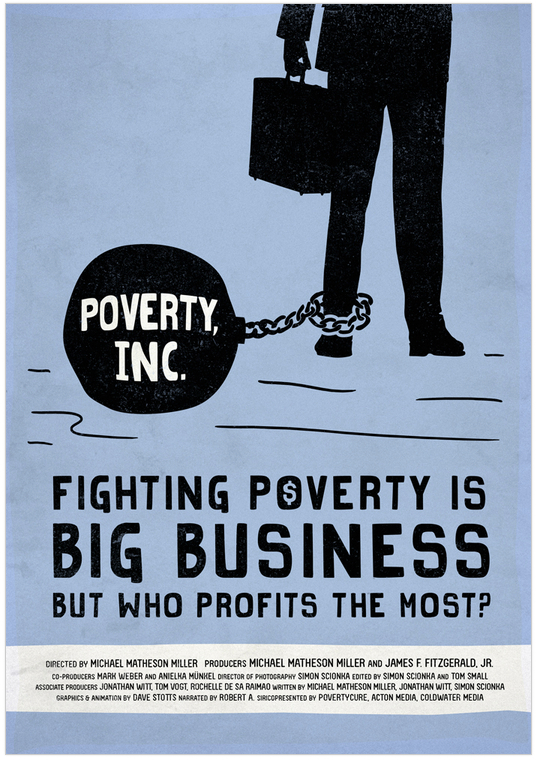Response to Michael Mattheson-Miller’s Poverty Inc.
Introduction:
I found this documentary to be insightful, thought-provoking, and intentionally made and I really enjoyed watching it. I have grown up exposed to the world of non-profit organizations (NPOs as they were referred to in the documentary) and while I believe I have experience with NPOs I consider not harmful, it was interesting to see how seemingly beneficial initiatives can be problematic in reality.
Discussion:
Overall, I agreed with the message conveyed in this documentary and a vast majority of the opinions stated within it. While I believe that philanthropy is a great and necessary tool, it is not as valuable if we are not helping solve the root of the issue. Most people would describe philanthropy as contributing to a good cause, but this documentary goes to show that those creating NPOs, as well as those donating to NPOs need to be more selective about what is a “good cause”.
Once the documentary shows the testimony of those living in impoverished areas and explains the harmful ways in which some NPOs may create more problems than they solve, it becomes obvious that paternalism is not a good strategy for philanthropy. Although this seems apparent when watching the documentary, I think it is very easy for the public, including myself, to get swept up in how nice an initiative sounds. For example, the documentary mentions TOMS Shoes’ “One for One” model of philanthropy as a perfect example of harmful charity. As a consumer, it never would have crossed my mind that this could have a negative impact, so this real-world example I was familiar with really made me question what I view as a “good cause”. Out of curiosity, I looked into TOMS Shoes’ current involvement in philanthropy, and it appears they have switched their model to donating 1/3 of their profits to initiatives that support those in need at the root cause rather than giving an area their products. It is reassuring to see how a company can learn from their mistakes and still contribute positively to the world. Although I think this can be a great thing to do morally, I do wonder if being philanthropic as a company is always a good business strategy. For example, some companies’ donation efforts may be towards causes that are not considered good causes to everyone. This is particularly true when companies decide to contribute to more politic causes and my generation specifically I feel like cares more than ever if the companies they support are supporting similar causes as they do.
Another great point brought up in Poverty Inc. was how broken the foster/adoption system truly is. As mentioned in the documentary, there are many orphaned children that are not truly orphaned in the sense that they don’t have parents, but rather that they do not have parents that can support them or give them the quality of life that a foster or adoptive home can give them. This exact situation is why we need NPOs to focus on rehoming children truly in need, but also helping parents to rehabilitate their lives in order to support their child. An example of this is the Circle of Care’s Pearl’s Hope Program in Tulsa, Oklahoma. This program allows for homeless mothers at risk of losing custody of their children to move into a home with their children. Rather than just being handed the home however, they are connected to resources that help them to get a job and eventually be able to support themselves and their children in their own homes. I believe this is an example of one NPO that can be beneficial rather than harmful as it promotes connections and opportunity rather than handing someone what they need on the surface. In my opinion, something like this could be an example of what Bono meant in the documentary when he said that he still believes aid is good. Although one of the interviewees in the documentary wildly disagreed with this, I do believe there are forms of aid as just described that are based on philanthropic efforts but promote growth the population being aided.
Conclusion:
All in all, I enjoyed watching this documentary and learning from the global perspective of those involved in its creation. It was inspiring to see how we are learning how to be better in the philanthropy industry. It was eye-opening to see how seemingly well-intentioned philanthropy efforts could have a harmful effect on populations, showing that we need to be more strategic in the philanthropy industry. After all, if NPOs that still utilize a paternalistic model concentrated their efforts instead on connecting those in poverty to opportunities, we would be better off.
